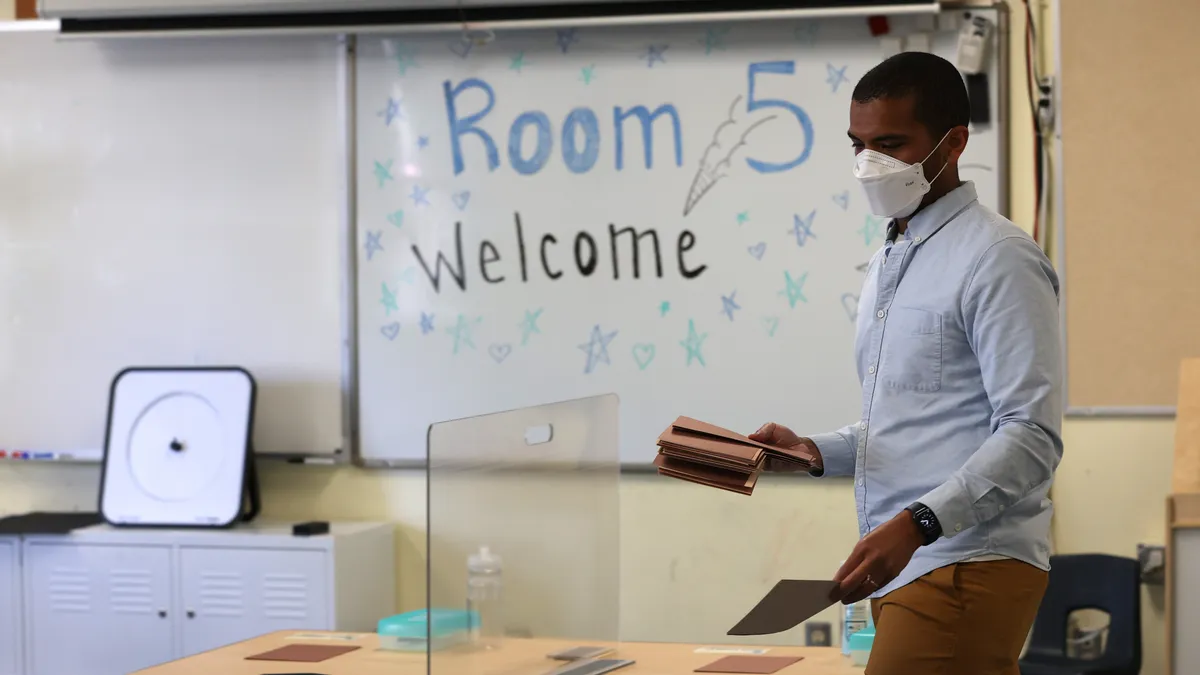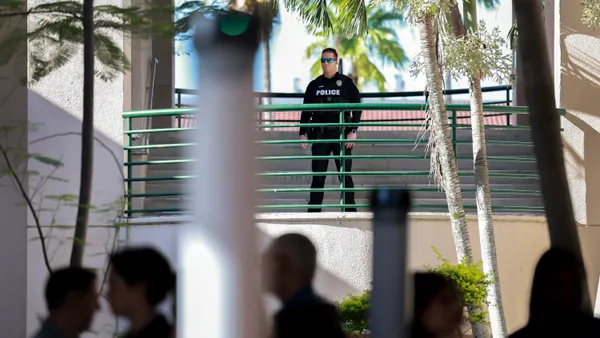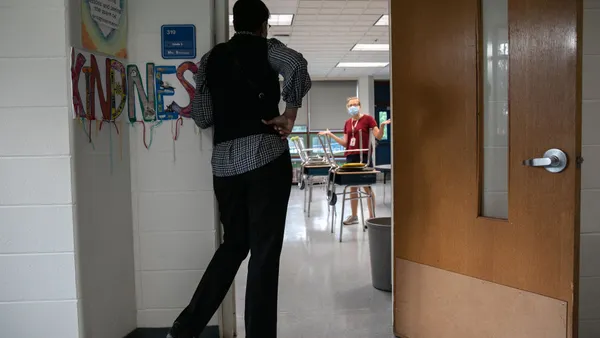Dive Brief:
- To embed diversity, equity and inclusion policies and priorities in school culture, it's essential that school leaders establish professional learning communities to build buy-in from staff, Jorge Valenzuela, an education coach and adjunct professor at Old Dominion University, writes for Edutopia.
- It can be a challenging topic that has to be addressed carefully, Valenzuela writes, but starting small and building toward improving interpersonal dynamics between staff is key to create an environment where adults set the culture change. This is crucial for these efforts to also work with students.
- While Valenzuela urges everyone to participate, he also notes people of color shouldn’t be forced to share their experiences, adding that participants should speak and listen from the heart and be willing to accept feedback. He also recommends curating anti-racist resources to continue diversity, equity and inclusion growth.
Dive Insight:
After a year filled with both pandemic challenges and a national reckoning with racial justice, a report by The Century Foundation encourages schools to create post-pandemic anti-racist models focused on students. The pandemic exposed how social determinants cause inequities in areas like healthcare and education. New social supports can include building stronger connections between schools, families and communities, and supporting educator training and curriculum development.
Another way to create a more equitable school culture is to eliminate microaggressions aimed at people of color. Microaggressions are defined as everyday, sometimes unnoticeable, exchanges that send denigrating messages to individuals based on race or other factors. To eliminate racism, school leaders need to lay out expectations and values that clearly define microagressions. People of color can also be "microaffirmed," which subtly reinforces an individual's value while acknowledging they belong to an underrepresented group.
Another way to eliminate racism is to embrace books by authors of color. At Newtown South High School, near Boston, English teacher Joana Chacon opted to only teach books by authors of color this year, with some exceptions. The decision was made to address racial justice, expanding students' horizons beyond works predominately written from White, male, Eurocentric viewpoints with those that students of color can also see themselves and their cultural experiences in. The school also set out to recruit students of color into extracurricular activities in which they may not normally participate.











